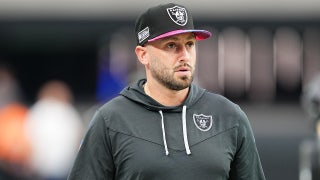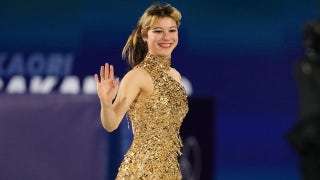Philadelphia, PA – Shooting, fencing, swimming, equestrian and running. Five disciplines that may appear to have very little in common, but those individual sports come together to form the Olympic event modern pentathlon.
The "modern" portion of the name helps distinguish the event from the Ancient Olympics' pentathlon, which has no common events with the current version. Modern pentathlon was invented by the Baron Pierre de Coubertin, who is considered to be the father of the modern Olympic Games.
A total of 72 participants, 36 men and 36 women, will compete in the event this summer in London. No more than two men or women from the same country are allowed to partake in the modern pentathlon.
The event takes place over the span of a single day with the men scheduled to compete on Aug. 11 and the women's event set for the following day.
Fencing is the first discipline in the modern pentathlon schedule and is followed by swimming and equestrian before the competition concludes with the "combined event," which features the running and shooting portions.
The London Olympics marks the first time this exact format is being used for the modern pentathlon. In previous years, the running and shooting portions were separate segments, but the International Modern Pentathlon Union voted to alter the format after the 2008 Beijing Games.
In the fencing portion, each contestant fences every other athlete in a duel. The first fencer to achieve a good touch is declared the winner and if the bout ends after the one-minute time limit without a hit, both athletes are given a loss. One lost fencing bout equates to a seven-second delay in the running discipline. Winning 25 of 35 bouts (70 percent) is considered "par for the course," earning 1,000 points.
Next up is a a 200-meter swim which concentrates more on time than winning individual heats. A time of 2 minutes, 30 seconds earns a contestant 1,000 points, while each 0.33 seconds above or below that standard results in plus or minus of four points.
After the swimming segment, athletes compete in the equestrian portion on a course that features 15 total jumps. Deductions are given for knocking down a rail, stopping before a jump, falling off the horse, or exceeding the designated time limit. A maximum score in show jumping is 1,200 points for an error-free finish under the standard time.
The final stage of the pentathlon is the combined event, where athletes show off their running and shooting skills.
The competitor with the most points from the previous three events starts the combined event. After that, athletes start in order at handicapped time intervals of one second for every four points. Contestants must run to the shooting range, hit five targets over a 70-second time period and then follow with a 1,000-meter run. Athletes must complete this process three times and the first contestant to cross the finish line in the combined event is awarded the gold medal.
The modern pentathlon has been an Olympic event for the men since the 1912 Stockholm Games, where future U.S. Army General George S. Patton placed fifth. The women have only competed in the event since the 2000 Olympics in Sydney.
Historically, Sweden has been the best country in the modern pentathlon, claiming nine golds and 19 total medals in the event, but the men's competition has been won by a Russian at each of the last three Summer Games. Andrey Moiseev has won the last two modern pentathlons and will try to become the first competitor to win three in a row this summer in London.
Before Moiseev, the last pentathlete to win back-to-back gold medals was Sweden's Lars Hall, who won the event in 1952 and '56.
The United States, which last won a medal in the men's pentathlon when Robert Beck claimed bronze in 1960, has one male participant in this year's event as Dennis Bowsher is set to partake in his first Olympic Games. Bowsher qualified for the London Games with a fourth-place finish at the 2011 Pan-Am Games.
Three different countries have taken gold on the women's side since 2000, but Great Britain has the most total medals with one gold, one silver and two bronze. Germany's Lena Schoneborn won gold at the Beijing Games and will be in London to defend her title this summer.
Canada does not have an entrant in the men's field, but Melanie McCann and Donna Marie Vakalis will compete for the country on the women's side.
The modern pentathlon will be staged at three separate venues in London. Swimming will take place at the Aquatics Centre, fencing at the Copper Box and both the equestrian and combined events will be held at Greenwich Park.








































